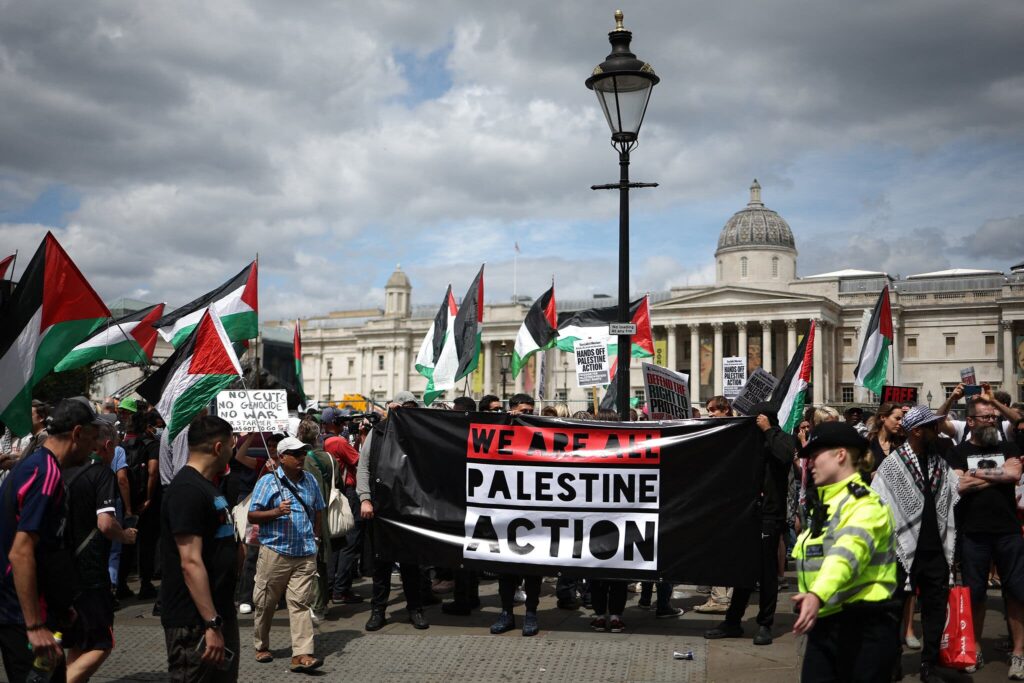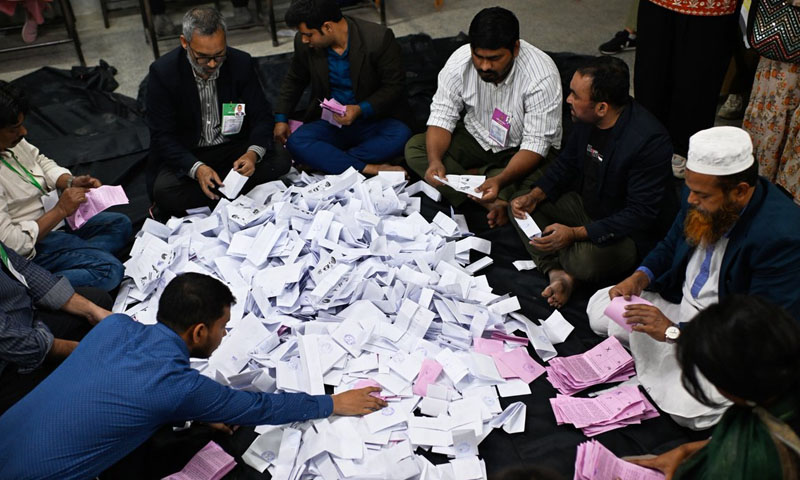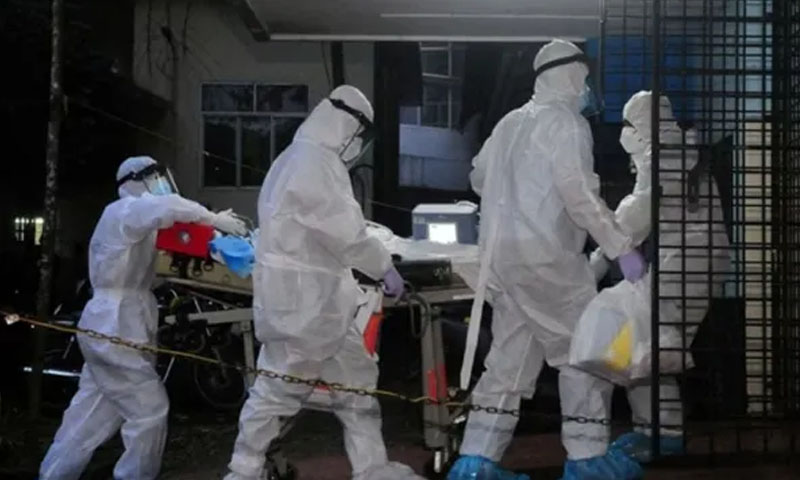- Web
- Yesterday
UK bans Gaza protest group – could the same happen elsewhere?
-

- Web Desk
- Jul 23, 2025

(THE CONVERSATION): More than 100 people were arrested in the United Kingdom (UK) on the weekend for supporting Palestine Action, a protest group that opposes Britain’s support of Israel.
Palestine Action was recently proscribed as a terrorist organisation, placing it in the same category as Hamas, al-Qaeda and Islamic State.
Many of those arrested were simply holding signs that read: “I oppose genocide, I support Palestine Action”. They were predominantly aged over 60.
In recent weeks, an 83-year-old vicar, a former government lawyer and various pensioners have been taken into custody and could be jailed for up to 14 years if found guilty of belonging to the protest group.
Simply holding a sign or wearing a T-shirt with the words “Palestine Action” could be punishable with a six-month jail term.
Read more: Gaza hospital says 21 children died from malnutrition and starvation in 72 hours
The protesters say they refuse to be silenced:
If we cannot speak freely about the genocide that is occurring […], if we cannot condemn those who are complicit in it […] then the right to freedom of expression has no meaning, and democracy and human rights in this country are dead.
So what is Palestine Acton and why is “middle England” up in arms over its designation as a terrorist group?
Activist network
Palestine Action is a UK-based activist network founded in 2020 with the stated aim of “ending global participation in Israel’s genocidal and apartheid regime”.
The group views the British government as complicit in Israeli war crimes in Gaza. It also aspires to halt UK arms exports through disruptive protests and vandalism.
Members have generally targeted Israeli-linked businesses, such as defence company Elbit Systems, by damaging equipment or blocking entrances.
Supporters include grassroots activists, civil liberties advocates, health professionals, clergy and prominent figures such as Pink Floyd musician Roger Waters.
Serious concerns
Palestine Action was officially proscribed in the UK on July 5, after campaigners sprayed paint into the engines of two Voyager aircraft at an air force base.
The final vote was overwhelming: 385 MPs supported the ban, while just 26 opposed it.
Under the Terrorism Act 2000, membership, support, or public endorsement of a proscribed group is a criminal offence punishable by sentences up to 14 years.
The UK government argues the group’s actions exceeded legal protest and raised serious security concerns.
Since then, scores of people have been searched and arrested at rallies in support of Palestine Acton.
Blurring the lines
Critics, including Amnesty International, civil liberties groups and The Guardian editorial board warn the ban blurs the line between non-violent civil disobedience and terrorism. They argue it also threatens democratic dissent through a statutory abuse of power.
Counter-terrorism laws permit extraordinary interference in due process and other fundamental human rights protections. Consequently, they must always be used with the highest degree of restraint.
The UK already had legislation in place to deal with criminal damage and violent disorder.
United Nations legal and human rights experts have spoken out against treating the actions of protesters who damage property without the intent to injure people as terrorism:
According to international standards, acts of protest that damage property, but are not intended to kill or injure people, should not be treated as terrorism.
Abuse of power
Designating Palestine Action as a terrorist organisation appears to be aimed at curtailing free expression, the assembly and association of those who support the protest action against Israel’s war on Gaza.
Placing it in the same legal category as Hamas seems designed to reduce public sympathy for the group.
Palestine Action is challenging its proscription in the UK High Court. Lawyers for the group argue the Joint Terrorism Analysis Centre has assessed the vast majority of its activities to be lawful:
On nature and scale, the home secretary [Yvette Cooper] accepts that only three of Palestine Action’s at least 385 actions would meet the statutory definition of terrorism […] itself a dubious assessment.
The lawyers further argue proscription was “repugnant” and an “authoritarian abuse of power”.
Australian version?
There are no indications from the intelligence community that any direct affiliate of Palestine Action (UK) operates in Australia.
However, there are pro-Palestinian activist organisations, including a Palestine Action Group Sydney, which is part of the Australian Palestine Advocacy Network (APAN).
Broader solidarity movements such as Students for Palestine, are active in protests on university campuses and against arms shipments to Israel.
Domestic terrorism powers
Traditional boundaries between “activism”, “extremism”, “hate-crime” and “terrorism” are rapidly blurring in Australia.
The attorney general may list (“proscription” is a UK term) any organisation as a “terrorist organisation” if they are satisfied it is “advocating terrorism”. This would mean criminalising the expression of support, instruction, or praise of terrorist acts or offences.
The latest addition to the 31-member list is Terrorgram, an online terrorism advocacy chatroom.
Australia’s extensive definition of “terrorist act”, currently under review, expressly excludes
advocacy, protest, dissent or industrial action and which is not intended to cause serious or life-endangering harm or death or to create a serious risk to the safety or health of the public.
This suggests an Australian version of a Palestine Action undertaking similar conduct to its UK cousin would not meet the legal threshold for listing.
However, the recent Terrorgram listing makes reference to advocacy for “attacks on minority groups, critical infrastructure and specific individuals”.
This suggests the UK and Australian governments are becoming more aligned in interpreting “violent” protest to include violence against property, rather than just against people.
Short of listing, a significant suite of investigative, coercive and preventative executive exists that could be deployed if a similar organisation appears in Australia.




